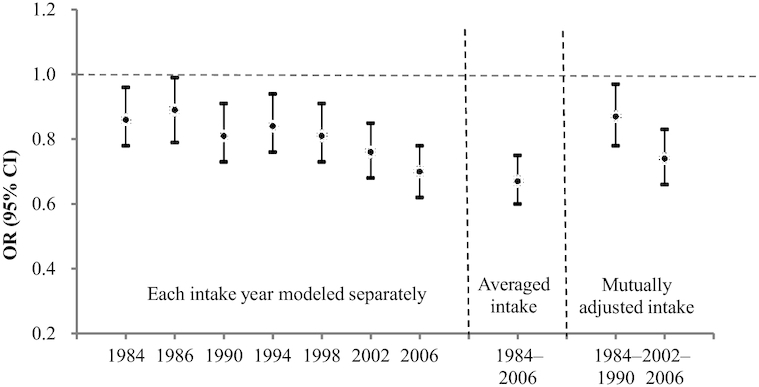FIGURE 2.

Intake of total carotenoids at each year of dietary assessment and odds of poor subjective cognitive function assessed in 2012–2014, comparing the highest quintile of intake with the lowest, in 49,493 women in the Nurses’ Health Study. The multivariable model was adjusted for age, race (white, other), education (registered nurse, bachelor's degree, graduate degree), husband education (high school degree or less, college degree, or graduate school), parental history of dementia (yes/no), smoking (never, ≤4, 5–24, >24 pack-years), cancer (yes/no), hypertension diagnosis (yes/no), depression, elevated cholesterol (yes/no), physical activity level (metabolic equivalent of tasks, h/wk; quintiles), BMI (<23, 23-24.9, 25-29.9, ≥30 kg/m2), cardiovascular disease (yes/no), multivitamin use (yes/no), alcohol intake, total calorie intake, number of dietary assessments, postmenopausal status and hormone replacement therapy use, parity (nulliparous, 1, ≥2), and intakes of vitamins C, D, and E, anthocyanidins, trans-fat, saturated fat, and long-chain n–3 fatty acids.
